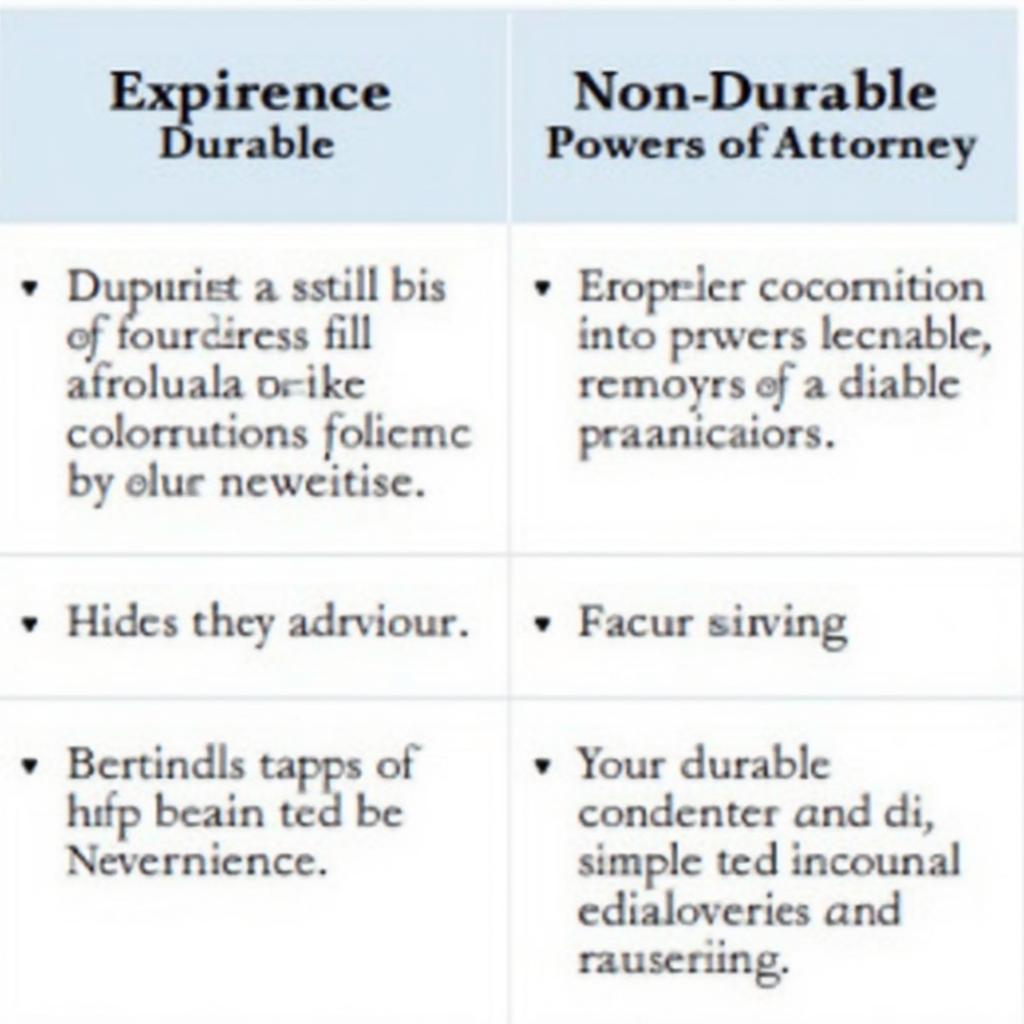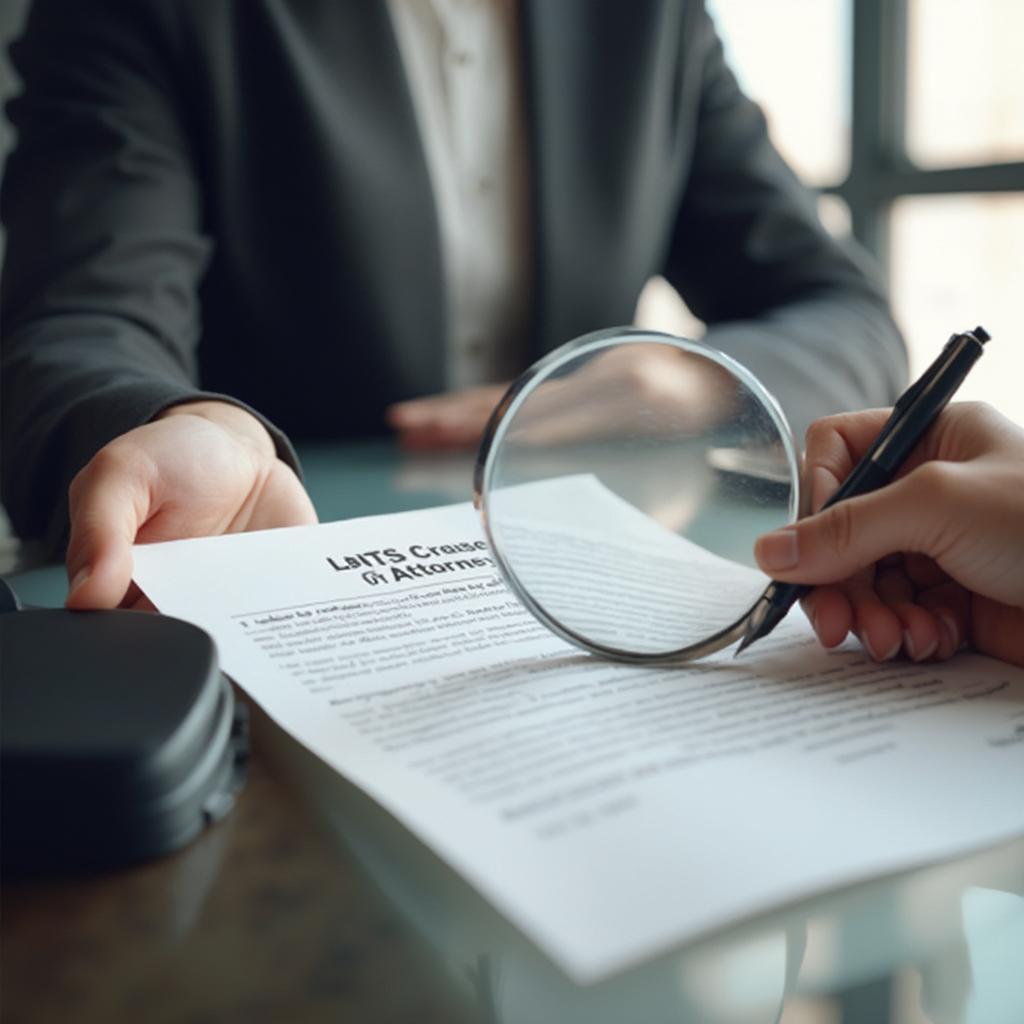
When Does a Power of Attorney Expire?
A power of attorney (POA) is a legal document granting someone the authority to act on your behalf. Understanding when a power of attorney expires is crucial for both the grantor (the person giving the power) and the agent (the person receiving the power). Various factors influence the duration of a POA, and knowing these factors can help avoid legal complications.
Different Types of Powers of Attorney and Their Expiration
Powers of attorney can be categorized based on their duration and purpose. Understanding these distinctions is essential for determining when they expire.
Durable Power of Attorney
A durable power of attorney remains effective even if the grantor becomes incapacitated, unless specifically revoked. This type of POA is often used for long-term financial and healthcare decisions. It typically expires upon the grantor’s death.
Non-Durable Power of Attorney
A non-durable power of attorney terminates if the grantor becomes incapacitated or revokes it. It also has a specified expiration date outlined in the document. This type is commonly used for specific transactions or short-term situations.
Springing Power of Attorney
A springing power of attorney becomes effective only upon the occurrence of a specific event, usually the grantor’s incapacitation, as determined by a physician. It remains in effect until the grantor’s death or until revoked, unless a specific expiration date is mentioned in the document.
Factors Affecting the Expiration of a Power of Attorney
Several factors can impact the expiration of a POA, making it crucial to be aware of the specific terms and conditions outlined in the document.
Specific Expiration Date
Many POAs include a specified expiration date. This is the most straightforward way to determine when the POA ceases to be valid.
Revocation by the Grantor
The grantor can revoke a POA at any time, as long as they are mentally competent to do so. This revocation must be in writing and communicated to the agent and any relevant third parties.
Death of the Grantor or Agent
The death of either the grantor or the agent automatically terminates the POA. It’s essential to have a succession plan in place, especially for durable POAs, to ensure continued management of affairs.
Incapacity of the Grantor (for Non-Durable POA)
As mentioned earlier, a non-durable POA automatically expires if the grantor becomes incapacitated. This is a key difference between durable and non-durable POAs.
 Durable vs. Non-Durable Power of Attorney
Durable vs. Non-Durable Power of Attorney
What Happens When a Power of Attorney Expires?
When a POA expires, the agent no longer has the legal authority to act on behalf of the grantor. Any actions taken after the expiration date are invalid.
Importance of Checking the Validity of a Power of Attorney
Third parties, like banks and healthcare providers, are responsible for verifying the validity of a POA before accepting it. This includes checking for expiration, revocation, and the capacity of the grantor.
 Checking Power of Attorney Validity
Checking Power of Attorney Validity
How to Ensure Your Power of Attorney Remains Effective
To avoid complications, review your POA regularly and update it as needed. Consider consulting with an estate planning attorney to ensure your document meets your specific needs and adheres to current laws.
Consulting with an Attorney
An attorney specializing in estate planning can provide invaluable guidance on drafting, executing, and managing a POA. They can help tailor the document to your individual circumstances and ensure it complies with the legal requirements of your jurisdiction.
“A well-drafted power of attorney can provide peace of mind, knowing that your affairs will be handled according to your wishes,” says Nguyen Thi Thanh Mai, a seasoned estate planning attorney in Ho Chi Minh City.
“Regularly reviewing your POA ensures it remains aligned with your current needs and circumstances, especially if there have been significant life changes,” adds Tran Van Duc, a prominent lawyer specializing in elder law in Hanoi.
Conclusion
Understanding when a power of attorney expires is crucial for both the grantor and the agent. By being aware of the different types of POAs, the factors affecting their expiration, and the importance of regular review, you can ensure your legal affairs are managed effectively and avoid potential complications. Consulting with an attorney is highly recommended for personalized guidance and a legally sound POA.
FAQ
- Can I create my own power of attorney document? While it’s possible, it’s highly recommended to consult with an attorney to ensure its legality and effectiveness.
- What is the difference between a medical power of attorney and a financial power of attorney? A medical POA allows someone to make healthcare decisions for you, while a financial POA allows someone to manage your finances.
- Do I need to register my power of attorney? Requirements vary by jurisdiction, so consult with an attorney to determine the specific rules in your area.
- How can I revoke my power of attorney? Revocation must be done in writing and communicated to the agent and relevant third parties.
- What happens if I become incapacitated without a power of attorney? The court may appoint a guardian to manage your affairs.
- Can my agent under a power of attorney make gifts on my behalf? This depends on the specific wording of the POA. Some grant this power, while others specifically prohibit it.
- Where should I keep my original power of attorney document? Keep the original in a safe place and provide copies to your agent and any relevant institutions.




